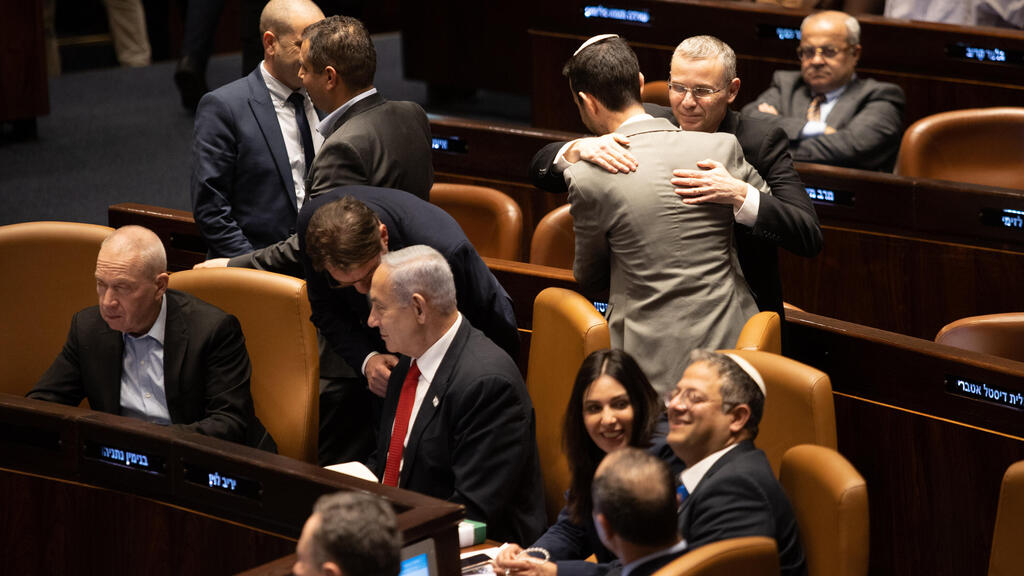Getting your Trinity Audio player ready...
Israel's parliament, the Knesset, passed on first reading of several reforms to Israel's judiciary early Tuesday, with 63 votes for the bill and 47 votes against it.
The proposed reforms have split the Israeli public, with the coalition going forward on just some of the controversial measures after public outcry.
2 View gallery


Benjamin Netanyahu shakes hands with Yariv Levin after the vote
(Photo: Alex Kolomoisky)
This bill would limit the Supreme Court ruling on Basic Laws, which function as Israel's constitution, while also changing the composition of the committee that selects judges.
The vote marked only preliminary approval for the plan. But it raised the stakes in a political battle that drew tens of thousands of protesters into the streets, sparked criticism from influential sectors of society and widened the rifts in an already polarized country.
Anti-government protests in Jerusalem
(Video: Gil Yochanan, Haim Goldich, Gilad Cohen, Oren Alon)
Yair Lapid, Israeli opposition leader, told coalition members in a tweet that "history will judge you." Lapid earlier met with Netanyahu over the reforms, as the two sides try to find a compromise.
Israel’s figurehead president has also urged the government to freeze the legislation and seek a compromise with the opposition, a position supported by most polls.
Chaos in the Knesset ahead of the vote
Despite efforts, it appears Israel's government is moving ahead regardless of opposition.
"A big night and a big day," Prime Minister Benjamin Netanyahu tweeted after the vote.
“The people exercised their right to vote in the elections and the people’s representatives will exercise their right to vote here in Israel’s Knesset. It’s called democracy,” Netanyahu said, though he left the door open for dialogue on the planned changes.
Part of the criticism of the reforms, besides changing the longstanding balance of power between branches of government, surrounds Netanyahu and the corruption trials against him.
A spike in heated rhetoric, which the right wing has dubbed incitement, over the reforms has been recorded even among political leaders, including Tel Aviv Mayor Ron Huldai and former prime minister Ehud Olmert.





